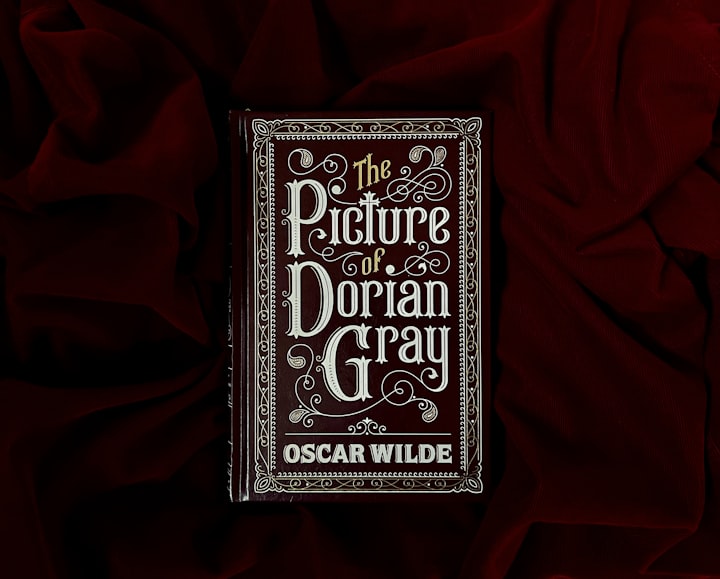
Although each and every play ever written by William Shakespeare has merited great praise in one way or another and attests to the brilliant mind of one of history’s greatest playwrights, I found one certain play in particular of Shakespeare’s to be especially deserving of further analysis, investigation, and contemplation. “Hamlet, Prince of Denmark”, one of Shakespeare’s well known tragedies entailing the misadventures of a young Danish prince. To give a quick summary of this play, the young Danish prince Hamlet is mourning the loss of his beloved father, the former King of Denmark, and is greatly troubled by the prematurity of the marriage of his mother to his uncle, the king’s brother and ascender into the throne. Having already experienced feelings of premonition, he soon finds his suspicions confirmed through the testament of his father’s ghost discovering that Claudius in fact murdered the former King Hamlet. Having discovered the method and means of his father’s death, Hamlet sets forth on a course of action to avenge the former king’s untimely death by any all means he deems necessary, taking into account the few points of guidance offered by the ghost in the execution of his plans.
This play has been one that I have always held in the highest of regard as many have found themselves able to sympathize and related to the main character in some way or another When reading this tragedy for the umpteenth time and going through it line by line, I began to think about what sort of tragedy this could be classified as. After much deliberation, the possibility of categorizing and viewing “Hamlet” as a tragedy of man’s nature came to mind. With this thought came also the fore-knowledge of the demise of the three main characters, Prince Hamlet, King Claudius, and Queen Gertrude. The question that presents itself is how can this play be seen as a tragedy of human nature and how do the main characters contribute to this idea? This question shall be further investigated throughout the course of this essay by means of exploring the aspects that each of the main three characters has been made to represent: pride through Hamlet, ambition through Claudius, and self-preservation through Gertrude.
First off, by setting up the character of Hamlet in such a way that embodies pride Shakespeare is inherently suggesting that it is a natural flaw found in all men which is ultimately able to cause their own downfall if any action is performed as a means to preserve it. When Prince Hamlet eventually discovers through the ghost of King Hamlet that his uncle Claudius murdered him in order to secure the throne for himself, he all too quickly charges himself with the task of rectifying the situation before him. Evidence of this is revealed through a passage taken straight from the play itself:
“Ay, thou poor ghost, while memory holds a seat in this distracted globe. Remember thee! Yea, from the table of my memory I’ll wipe away all trivial fond records, all saws of books, all forms, all pressures past, that youth and observation copied there; and thy commandment all alone shall live within the book and volume of my brain, unmixt with baser matter: yes, by heaven!—O most pernicious woman! O villain, villain, smiling, damned villain! My tables,--meet it is I set it down, that one may smile, and smile, and be a villain; at least I’m sure it may be so in Denmark: So, uncle, there you are. Now to my word; it is ‘Adieu, adieu! remember me:’ I have sworn’t” (Act I, Scene V).
Through this passage, we see that Hamlet is going as far as to eliminate all other information in his mind that he has come to see as unimportant when it comes to the former King Hamlet’s urging for him to avenge his death and preserve the good, moral, and regal nature of the throne by doing so. In allowing this one command to consume his every thought to the point where it becomes one and the same with the Danish prince, Shakespeare reveals that when pride leads one to become obsessed and consumed with a single thought without calling upon any reason or wisdom to justify or refute the actions that would be carried out on account of it, this in no way could end well for the character who spurs on to see it carried out to the fullest extent. In addition to this, there is a certain foreshadowing in Hamlet’s saying that the “time is out of joint:--O cursed spite, that ever I was born to set it right!—“(Act I, Scene V). By voicing this exclamation, Hamlet reveals a sort of knowledge that in order to put things right again by exacting vengeance upon his uncle, there is a certain price that he possibly must fulfill in order to see it through. Overall, with little to no regard for himself or his mental health, it is shown that pride will often lead those overtaken by it down a path where one will not be able to return from whence they came; or if they do, their mind, heart, and quite possibly their soul will not have come out the same as before. In this case, Hamlet’s very life and mental state is placed upon the chopping block in his avid attempt to punish Claudius for murdering his father.
Shakespeare further emphasizes the harmful effects of one being overtaken by their pride by their infliction reaching out of themselves and touching those they love and care for in the worst ways possible. As Hamlet has shrouded his intentions and masked his plans by adopting a sort of manic temperament so no one will question or suspect his motives behind his actions, the other characters grow concerned and endeavor as to figure out why he has become so mad. Polonius, a member of the royal court and counsel, offers to have Ophelia, Hamlet’s love interest, approach him as he believes that Hamlet is simply lovesick. However, when Ophelia does approach him, it is all too clear that this is not the case when he voices the following:
“If thou dost marry, I’ll give thee this plague for they dowry,--be thou as chaste as ice as pure as snow, thou shalt not escape calumny. Get thee to a nunnery, go: farewell. Or, if thou wilt needs marry, marry a fool; for wise men know well enough what monsters you make of them. To a nunnery, go; and quickly too. Farewell…I say, we will have no more marriages: those that are married already, all but one, shall live; the rest shall keep as they are. To a nunnery, go” (Act III, Scene I).
Based on the passage, in addition to ridding himself of any other thought apart from that of avenging his father’s death, Hamlet has purged himself of all affections he ever had for Ophelia. His pride has consumed him to the point where not only is he being negatively affected, it is poisoning the relationship he and Ophelia once had and invalidates all the attempts he had made previously to woo and win her heart. Therefore, by Shakespeare embodying pride as Prince Hamlet, he discloses that pride is a tragic flaw that not only kills the spirit but harms those that come into direct contact with the person disillusioned by it.
Secondarily, as suggested by his other plays, Shakespeare is shown to associate the concept of ambition with villainy and establishes it as the quickest road man takes to inexorably meet his own ruin; through the crafting of the character Claudius, Shakespeare makes it indubitably evident throughout the play that ambition is one of man’s greatest sins which he commits against both himself and others. It is not mentioned in the beginning of the play when we see that the marriage of Claudius and Gertrude follows shortly after having finished the funeral procession for the former King Hamlet. However, when Hamlet encounters his father’s ghost and learns of Claudius’s wicked deed, Shakespeare introduces the evil found within man wanting to succeed to the point where they would compromise their own moral purity just to attain their desired status in society. This is outlined within the following discourse between Hamlet and the Ghost:
Ghost: “but know thou noble youth, the serpent that did sting thy father’s life now wears his crown.”
Hamlet: “O my prophetic soul! My uncle!”
Ghost: “Ay, that incestuous, that adulterate beast, with witchcraft of his wit, with traitorous gifts,--O wicked wit and gifts, that have the power so to seduce!—won to his shameful lust the will of my most seeming-virtuous queen…” (Act I, Scene V).
Through this we see that Claudius desired to be King of Denmark to such an extent, he was willing to kill his own brother and take his wife as his own. In addition to this, he is found confessing his own wickedness in private once Hamlet indirectly reminds him of his guilt through the play within a play scene where the actors reenact The Murder of Gonzago. He is found contemplating his actions the motives behind them through the following passage:
“Then I’ll look up; my fault is past. But, O, what form of prayer can serve my turn? ‘Forgive me my foul murder’?—That cannot be, since I am still possest of those effects for which I did the murder,--my crown, mine own ambition, and my queen. May one be pardon’d, and retain th’ offence?” (Act III, Scene III).
By inclusion of these lines Shakespeare reveals to the audience that even in his villainy Claudius recognizes that what he has done was wrong both in itself and in motive though he will not make any real effort to make things right between himself and God since in the world’s eyes he would be but a fool to give up all that he had strived to achieve through his immoral course; this in turn causes Claudius’s downfall in the end. On the whole, in the incorporation of this character with this loathed mortal flaw Shakespeare attempts to convey that when one does something out of sheer ambition the outcome, while one may enjoy it for a time, is short-lived once one reflects on how they came by it.
Finally, Shakespeare generates the character of Gertrude to represent man’s sense of self-preservation and identifies it as one of the fatal flaws of human nature as the reader goes through the story due to the idea that this sense, if misguided, can turn man into an opportunist. Although it is never directly mentioned or even verified within the tragic play there is room left to interpret that Gertrude married with Hamlet’s uncle not out of love and not even out of lust, but out of a perceived necessity. Had Gertrude not married Claudius, there is a good chance that she would have lost all authority and privilege that come with being Queen of Denmark. It is only when Hamlet forces her to open her eyes in the closet scene that she comes to realize that what she has done in marrying Claudius so quickly after her husband’s death is deplorable in every sense of the word. More specifically as she begs Hamlet to cease his rebukes, she makes it clear that in doing so he “turn’st [her] eyes into [her] very soul” which she sees “such black and grained spots” and as his words pierce her “like daggers” he has “cleft [her] heart in twain” (Act III, Scene IV). Shakespeare shows that before Hamlet brought it to her attention she has made herself blind to the fact that the relationship she shared with King Hamlet was that of a true marriage and was and is far superior to that which she shares with his brother Claudius. This in turn exposes the human sense of self-preservation to be a fatal flaw that contributes to the downfall of Gertrude while Act V is being drawn to a close. Through Gertrude’s character we are able to see that self-preservation, while it is beneficial in survival situations, is a flaw that can cause much damage in the long run if it causes one to act without thinking.
In conclusion, “Hamlet” can be viewed as a tragedy of flaws exhibited in human nature when considering the roles of Hamlet, Claudius, and Gertrude and giving serious contemplation as to which flaw they embody to the highest degree. Hamlet, a figure of pride, meets his end by allowing himself to become obsessed with avenging his father to the point where he justified everything he had done, hurting Ophelia and killing her father, as a necessary means to an end. Claudius, who embodies ambition, is undone through his desire to become king of Denmark by any means necessary which produced eventual repercussions once Hamlet finds him out. Last but not least, Gertrude, who has been established as a character representing self-preservation, meets her end by attempting to kill her heart and blind herself to the reasons why she married Claudius in the first place. One thing is certain, if this play is not amply received as a warning against subjecting oneself to the flaws within their nature, then there is absolutely no hope or future for playwrights and their work.
About the Creator
Minna G
An eclectic witchy woman here to hone her craft as a desperate attempt to create some sense out of the maddening chaos that is her own mind.






Comments
There are no comments for this story
Be the first to respond and start the conversation.